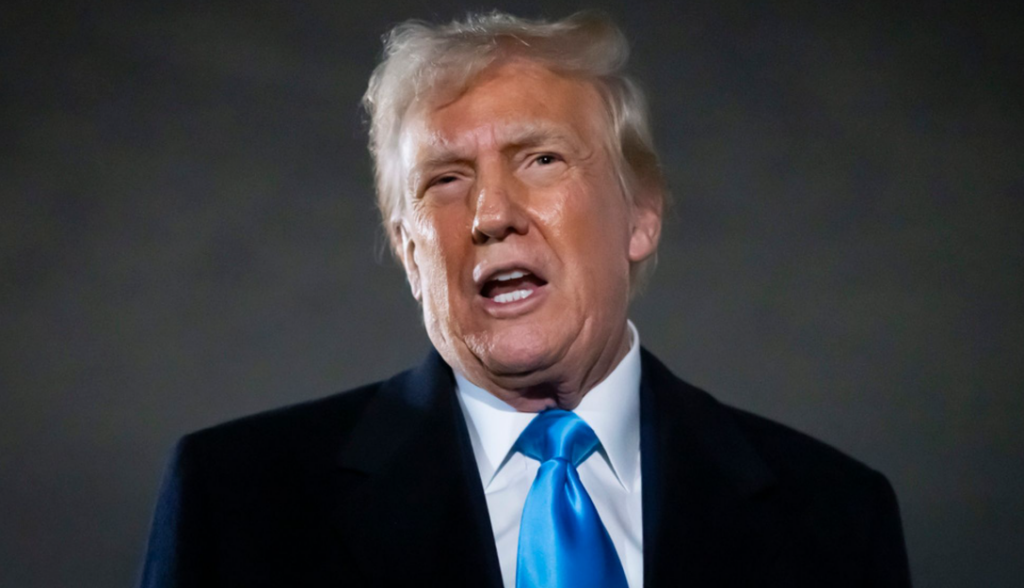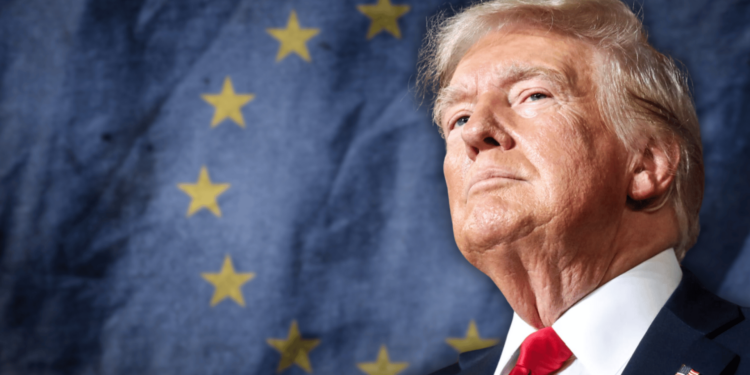- Trump is considering a 10% tariff on EU imports, escalating global trade tensions.
- EU leaders are prepared to retaliate with duties of up to 50% on U.S. goods if the tariffs proceed.
- Legal experts warn Trump’s use of the IEEPA for tariffs may face swift court challenges.
Donald Trump is reportedly weighing a 10% tariff on all imports from the EU, a move that could escalate the already-brewing global trade war. The new U.S. president recently slapped heavy tariffs on goods from Mexico, Canada, and China, prompting swift backlash. Both Canada and Mexico vowed retaliation, while China threatened legal action and hinted at further countermeasures.
A source close to the Trump administration said there’s internal debate, but “some want a 10% tariff across the board” on EU imports. Another insider described Trump’s current tariffs as a way to “test the water” and see what he can get away with.
Trump Signals Tariff Plans on EU Imports
Speaking from Mar-a-Lago on Sunday, Trump was firm about future tariffs on the EU, claiming the region has “taken advantage” of the U.S. for too long. “We have a $300 billion deficit with them,” he said. “They don’t take our cars or farm products, but we take in millions of theirs.”
Meanwhile, reports indicate that EU policymakers are ready to hit back with duties as high as 50% on key U.S. exports if the tariffs go forward. German Chancellor Olaf Scholz warned, “Europe can respond to tariff policies with tariff policies.”

UK’s Position Caught in the Crossfire
Trump also called out the UK’s trade practices, describing them as “out of line” but suggested they could reach an agreement. He noted that his talks with Prime Minister Sir Keir Starmer have been cordial. “We’ve had a few meetings and phone calls; things are going well,” Trump said.
Sir Keir, however, faces political pressure at home. He is preparing for a trip to Brussels to attend an EU summit—making him the first UK prime minister to do so since Brexit. As part of a broader effort to “reset” relations, Starmer is expected to propose several concessions, including aligning UK emissions policy with EU standards and revamping a visa scheme for young Europeans. Critics argue that Starmer risks alienating the U.S. by getting too close to Brussels.
Trade Experts Sound the Alarm
Behind the scenes, Trump’s administration may be leveraging the International Emergency Economic Powers Act (IEEPA) to justify the tariffs. While the law grants broad authority during national emergencies, using it for import tariffs is largely untested. Legal experts predict that Trump’s actions could face immediate court challenges that set new precedents.
“They are pushing the boundaries of presidential power,” said Andrew Hale, a trade policy analyst at the Heritage Foundation. “If a judge allows tariffs under IEEPA, they’ll use Canada and Mexico as test cases before targeting the EU.”
As the situation unfolds, global trade tensions appear set to escalate, with key players bracing for a new chapter in the tariff wars.














